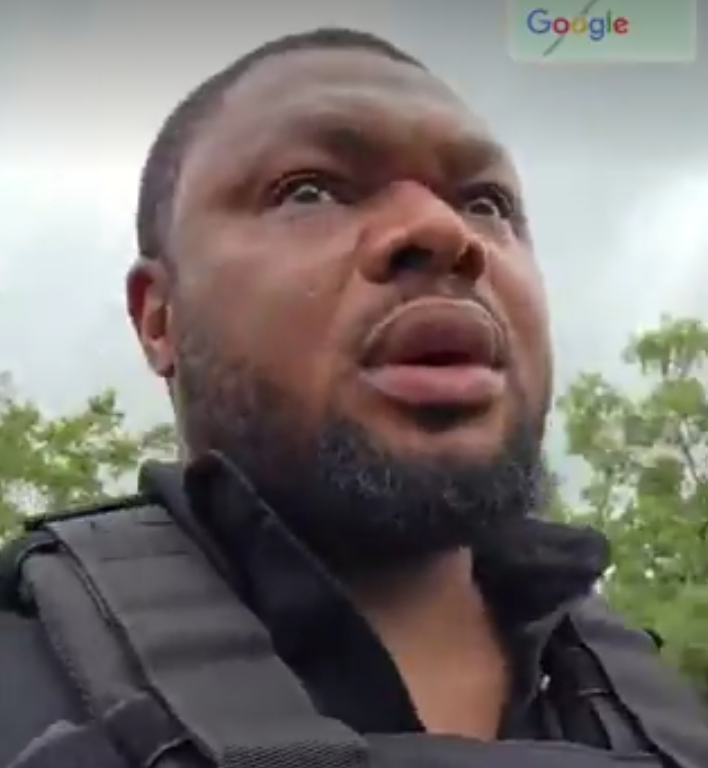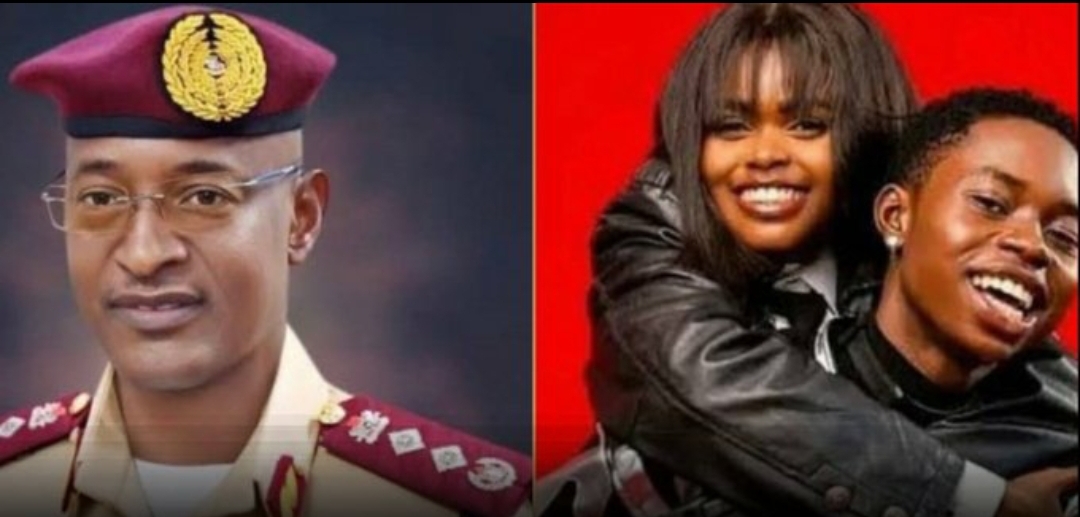
“We’re Ready to Live in the Bush for Nigeria”: Harrison Gwamnishu Declares His Team’s Readiness to Partner with Police and Armed Forces Using Cutting-Edge Tech

In a bold and passionate declaration that has stirred conversations across social media, Nigerian activist and humanitarian, Harrison Gwamnishu, took to his Instagram page to announce that his team is fully prepared to move into the bush to help combat crime and insecurity in the country. Gwamnishu, who has earned a reputation for his relentless fight against injustice, corruption, and human rights abuses, stated that his group has the technological tools, experience, and willpower to locate and apprehend criminals hiding in remote areas—but emphasized that they cannot do it alone.
“We are prepared to live and operate in the bush, but we cannot do it alone,” he wrote. The post, which has since gone viral, reflects the growing frustration among ordinary Nigerians over the rising wave of banditry, kidnapping, and terrorism that continues to plague different regions of the country. Gwamnishu’s words, however, go beyond frustration—they represent a call to action, an open invitation for collaboration between civilians with proven expertise and the nation’s security agencies.
Known for his fearless advocacy and his track record in tracking and rescuing victims of abduction and abuse, Gwamnishu revealed that his team is not only experienced but also equipped with advanced technology that has successfully been used to locate and apprehend criminals in difficult terrains. “We have done this before. We have located and apprehended criminals hiding deep in the bush using technology,” he added in the post, drawing praise and attention from citizens who believe that the government should partner more with tech-driven civilian outfits like his.
Social media users quickly flooded the comment section, expressing both admiration and concern. Many hailed his courage, describing him as “a national asset” and “a true patriot,” while others called for urgent government support to fund and integrate such private efforts into Nigeria’s broader security framework. “This is the kind of initiative the government should be funding instead of waiting for miracles,” one user commented. Another wrote, “These are the real heroes. Imagine what they can do with proper backing from the police and military.”
In a country where insecurity has claimed thousands of lives and displaced millions, Gwamnishu’s words resonate with a sense of urgency. His message underscores a harsh reality: Nigeria’s fight against banditry and terrorism can no longer be left to the armed forces alone. Civilians, especially those with specialized skills and local intelligence, have an increasingly vital role to play in supplementing official efforts. But as Gwamnishu himself admitted, “we cannot do it alone.” Without support, resources, and coordination, such brave initiatives may struggle to reach their full potential.
Over the years, Gwamnishu’s name has become synonymous with grassroots activism and community-based solutions to crime and injustice. From leading rescue operations to mediating in cases of police brutality and gender-based violence, his commitment to justice and security has been consistent. Those who have followed his work say that his statement is not mere talk—it’s a continuation of his life’s mission. “If Harrison says he can do it, believe me, he can,” one supporter wrote. “He’s been doing this silently for years, without government recognition or funding.”
Observers also note that his emphasis on technology is significant. Nigeria’s security challenges have often been compounded by poor intelligence gathering and a lack of modern tracking tools. Gwamnishu’s revelation that his team has access to technology capable of locating criminals in the bush raises hopes that indigenous, tech-savvy groups could revolutionize local security operations if properly empowered. In an era where drones, GPS tracking, and mobile surveillance can make the difference between success and failure in field operations, his statement couldn’t have come at a better time.
However, some analysts warn that while his zeal is commendable, operating in the bush alongside armed forces presents serious logistical and safety challenges. Without formal integration, training, and proper coordination with the military and police, civilian operations could inadvertently lead to confusion or even casualties. “What Harrison is proposing is powerful, but it needs structure,” a security expert told an online blog. “They need funding, equipment, and communication channels with the official command centers. Otherwise, their bravery could be wasted or misdirected.”
Still, the overwhelming sentiment online remains one of admiration and hope. Nigerians are inspired by his readiness to take such a bold stand at a time when many feel helpless in the face of mounting insecurity. His post also reignited conversations about citizen involvement in national defense, with some suggesting that the government should establish a formal framework for vetted volunteer security teams equipped with local knowledge and tech resources.
Gwamnishu’s message comes at a time when several states, particularly in the North and Middle Belt, continue to grapple with deadly bandit attacks and mass abductions. The situation has placed immense pressure on Nigeria’s overstretched security forces, making partnerships with reliable civilian groups an appealing prospect. His declaration therefore reads not just as a social media post but as a public offer of collaboration—an open hand extended to the state, asking for partnership, not praise.
In recent months, the activist has shared glimpses of his team’s fieldwork, including operations where they helped locate missing persons using GPS-enabled devices and local intelligence networks. His commitment to combining humanitarian work with high-risk field missions has earned him both accolades and threats. Yet, his passion appears unshaken. “Nigeria belongs to all of us,” he often says, a statement that encapsulates his belief that security is a shared responsibility.
Many see in him the embodiment of the fearless Nigerian spirit—a blend of patriotism, innovation, and resilience. His post has sparked renewed calls for private-public collaboration in the fight against insecurity, with some tagging the Police, DSS, and Nigerian Army under his comments, urging them to “reach out and work with him.” A few even suggested crowdfunding to support his team’s efforts if official help doesn’t come quickly.
As the post continues to trend, one thing is clear: Harrison Gwamnishu’s statement has touched a national nerve. It’s more than a call to arms—it’s a reminder that courage and innovation still exist among ordinary citizens willing to risk everything for a safer nation. His readiness to “live in the bush” for Nigeria isn’t a metaphor; it’s a challenge to those in power to match his courage with action, his passion with funding, and his initiative with institutional support.
In a country where insecurity often dominates the headlines, voices like Gwamnishu’s offer a rare glimmer of hope—that beyond politics and bureaucracy, there are still men and women willing to go the extra mile, even into the wilderness, to defend their nation. Whether the government will seize this opportunity to collaborate with him and his team remains to be seen, but for now, Nigerians are united in one thought: people like Harrison Gwamnishu deserve every ounce of support, funding, and recognition they can get.
“We are prepared to live and operate in the bush but we cannot do it alone”- Harrison Gwamnishu just posted this on his IG, says they’re ready to support the Police and the Armed Forces. Using technology their team has, a proven track record of locating and apprehending… pic.twitter.com/r7gkSeMH4i
— Oyindamola🙄 (@dammiedammie35) October 22, 2025


